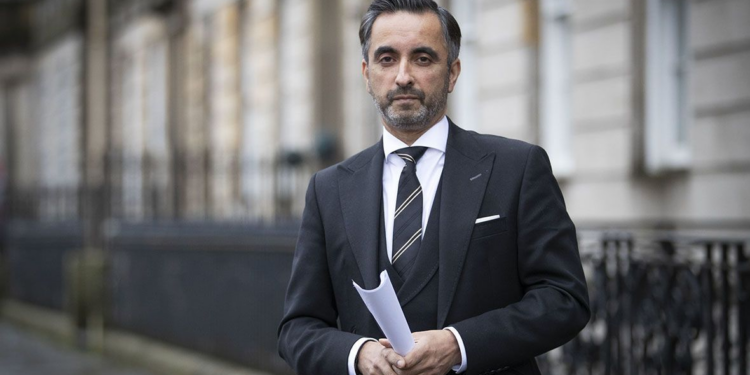In a shocking turn of events, Police Scotland is set to launch an investigation into the allegedly fraudulent use of Do Not Resuscitate (DNR) orders during the Covid-19 pandemic. This latest scandal adds to the growing list of controversies surrounding the handling of the pandemic. Criminal proceedings could be raised, as witnesses claim that the infirm were deemed “not worth saving.”
These investigations will be incorporated into Operation Koper, which is already examining deaths in care homes and scrutinizing the decision-making of Nicola Sturgeon and Jeane Freeman. Dubbed the “Shipman sisters” by some nurses, their choice to send Covid-infected patients to nursing homes resulted in fatal consequences for some residents.
The Crown Office is currently reviewing over 6,000 fatalities related to the virus, making it the largest death investigation in Scottish history. Evidence presented at the Scottish Covid-19 Inquiry has revealed numerous instances where DNR procedures seemed to deviate from government guidelines. Disturbing allegations have emerged, including forged signatures and reports of GP surgeries pressuring infirm patients to sign forms that denied them access to intensive care units.
Enter Operation Koper, which will delve into these accusations and investigate possible criminality. Lawyer Aamer Anwar, representing the Scottish Covid Bereaved group, emphasized the seriousness of the allegations, stating that they must be the basis for any criminal investigation into care homes. Anwar described the alleged actions as a “cynical practice” that treated elderly individuals as expendable.
Testimonies from witnesses have painted a grim picture. Gillian Grant, a witness at the inquiry, discovered her name on the signature strip of a DNR form for her grandmother, despite never having seen or signed it. She expressed shock and distress, insisting that the writing did not resemble her signature in any way. Tragically, her 91-year-old grandmother was the first of 15 residents at Mavisbank Care Home to succumb to Covid-19. The inquiry also heard from a care home manager who claimed they were instructed to ensure DNRs were in place for all residents.
Tressa Burke of the Glasgow Disability Alliance revealed that GP surgeries had contacted their members out of the blue, urging them to sign DNRs. This disturbing practice left individuals feeling as though their lives were deemed unworthy of saving. The Scottish Government has repeatedly denied any changes to DNR guidelines during the pandemic.
Peter McCormick, managing director of Randolph Hill Nursing Homes, contradicted the government's claims during his testimony at the inquiry. He believed that NHS Scotland quietly made a decision to restrict hospital treatment for individuals in care homes, as hospitals struggled to cope with the overwhelming influx of Covid patients.
The Crown Office and Procurator Fiscal Service acknowledged the enormity of the task at hand, stating that the pandemic has resulted in over 6,000 reported Covid deaths being investigated since 2020. They described it as the most significant and challenging death investigation they have ever undertaken.
Mavisbank, a care home involved in the allegations, stated that DNRs are medical decisions made by doctors and that care homes do not have the authority to make such choices. The Scottish Government affirmed its commitment to participating in both the Scottish Covid-19 Inquiry and the UK Covid Inquiry, emphasizing the importance of learning lessons from the pandemic to prepare for the future.
As this investigation unfolds, it is clear that there are serious questions to be answered regarding the alleged fraudulent use of DNR orders during the Covid-19 pandemic. The implications are disturbing, suggesting a disregard for the lives of vulnerable individuals and a breach of trust within the healthcare system.







